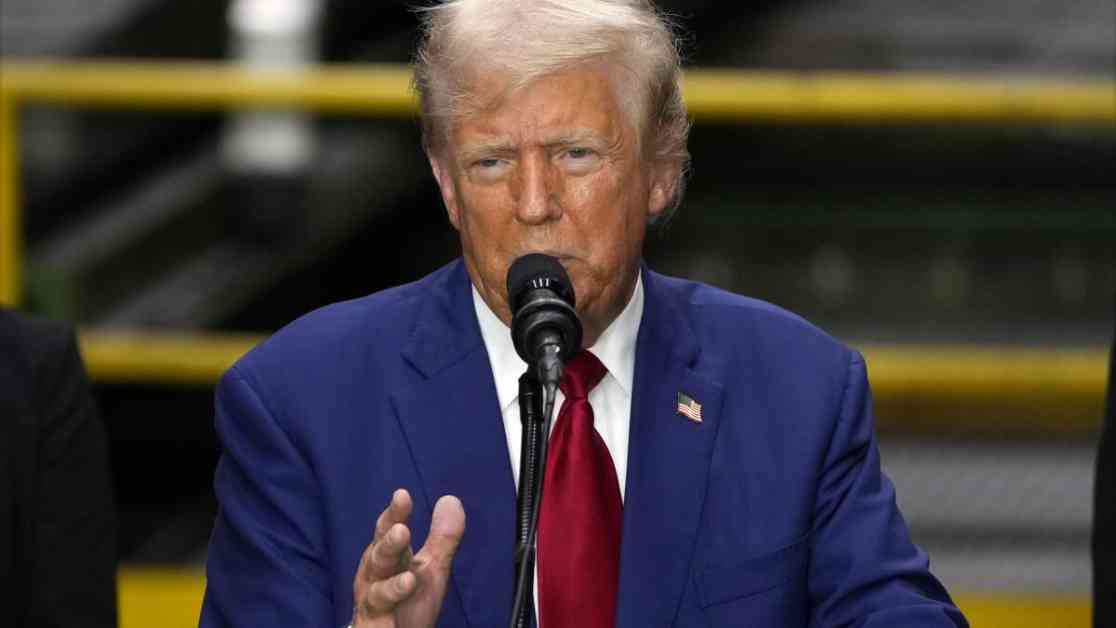Former President Trump took aim at Vice President Kamala Harris during a speech at a manufacturing company in York, Pa., where he criticized her father, made false claims about her recruiting undocumented immigrants to vote, and alleged that Democrats overthrew President Biden in an illegal “coup.” This speech, part of Trump’s tour of battleground states, coincided with the first day of the Democratic National Convention in Chicago. Trump’s remarks once again showcased his tendency to resort to personal attacks and conspiracy theories rather than focusing on policy issues.
Personal Attacks and Conspiracies
During his speech, Trump targeted Vice President Harris’s father, Donald Harris, who is a Jamaican-born professor and a prominent scholar of Marxist theory. Trump falsely claimed that Harris was recruiting undocumented immigrants to vote and questioned the legitimacy of Biden’s presidency. These unfounded allegations are part of a pattern of behavior by Trump, who has previously insulted Harris’s appearance, spread false information about her campaign events, and questioned her racial identity.
Trump’s inflammatory rhetoric is not new, as he has a history of making baseless claims and engaging in personal attacks against his political opponents. By focusing on divisive and conspiratorial narratives, Trump continues to undermine his own credibility and detract from substantive policy discussions. His repeated attacks on Harris and the Democratic Party serve to further polarize an already divided electorate.
Policy Proposals and Economic Agenda
Despite the inflammatory rhetoric, Trump did touch on some policy proposals during his speech, particularly regarding the economy. He promised to increase fracking, approve new energy infrastructure projects quickly, and prioritize American manufacturing and job creation. These proposals are in line with Trump’s previous economic agenda, which focused on deregulation, tax cuts, and promoting domestic energy production.
However, Trump’s economic promises are overshadowed by his inflammatory remarks and conspiracy theories. By mixing policy proposals with personal attacks and baseless accusations, Trump muddies the waters and detracts from substantive policy discussions. This approach may appeal to his base but does little to broaden his appeal or engage with undecided voters.
Response from the Biden-Harris Campaign
In response to Trump’s attacks, the Biden-Harris campaign has denounced his false claims and personal attacks. Vice President Harris has focused on highlighting her policy proposals and vision for the country, rather than engaging in a war of words with Trump. By staying above the fray and focusing on issues that matter to voters, Harris and the Biden campaign aim to contrast their approach with Trump’s divisive tactics.
The contrast between Trump’s inflammatory rhetoric and the Biden-Harris campaign’s focus on policy and unity highlights the choice facing voters in the upcoming election. While Trump seeks to sow division and spread misinformation, the Biden-Harris campaign emphasizes a message of hope, unity, and progress. This difference in tone and approach is likely to influence undecided voters and shape the outcome of the election.
As the campaign season heats up, it is crucial for voters to critically evaluate the messages and tactics of the candidates. By focusing on policy proposals, unity, and a positive vision for the future, the Biden-Harris campaign aims to appeal to a broad coalition of voters and build momentum heading into the election. In contrast, Trump’s reliance on personal attacks and conspiracy theories may appeal to his base but risks alienating moderate and undecided voters.
In the final stretch of the campaign, the choice between Trump’s divisive rhetoric and the Biden-Harris campaign’s message of unity and progress will be front and center. Voters will have the opportunity to decide which vision for the country they want to support and which candidate they believe is best equipped to lead the nation forward. The stakes are high, and the outcome of the election will have far-reaching implications for the future of the United States.



























